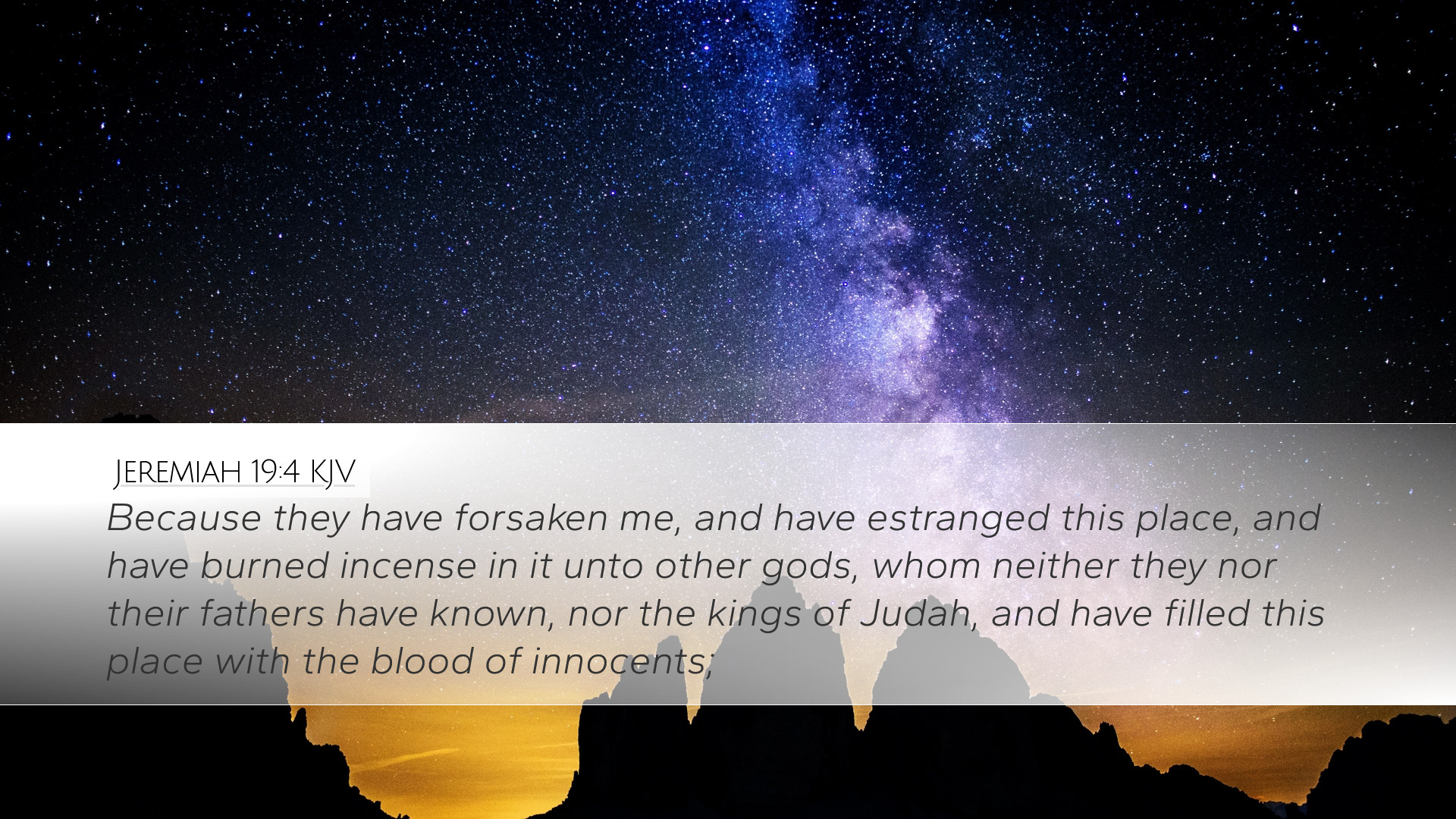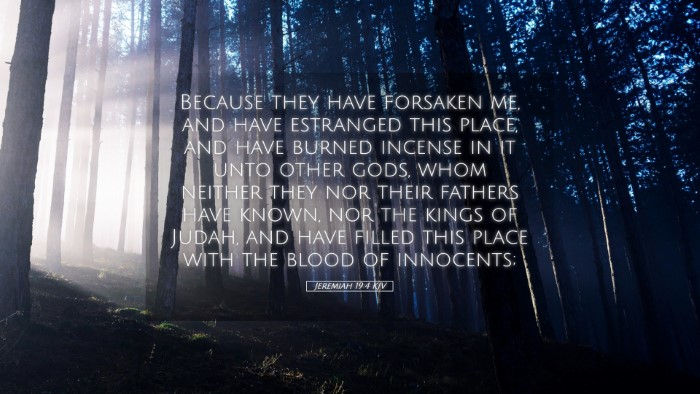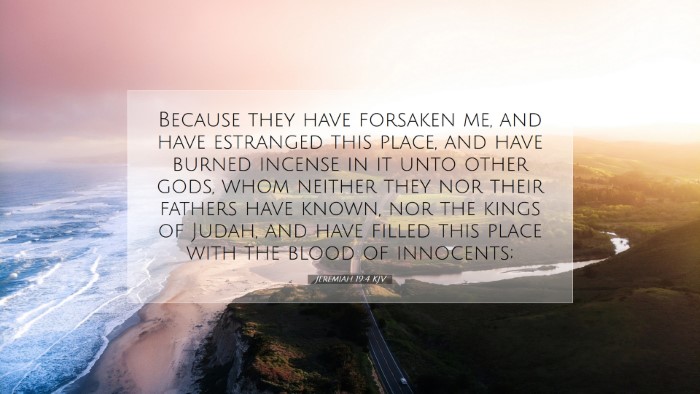Commentary on Jeremiah 19:4
Jeremiah 19:4 states, "Because they have forsaken me, and have estranged this place, and have burned incense in it to other gods, whom neither they nor their fathers have known, nor the kings of Judah, and have filled this place with the blood of innocents." This verse captures a significant moment of prophetic warning delivered by Jeremiah to the people of Judah, encapsulating themes of idolatry, injustice, and divine judgment.
Historical Context
In the time of Jeremiah, the nation of Judah was experiencing moral and spiritual decay. The worship of Yahweh was being replaced by the veneration of false gods, leading to rampant idolatry. Matthew Henry notes that the people had "forsaken God," which highlights a deliberate abandonment of their covenant relationship with Him.
Exegesis of the Text
This verse can be divided into key components that reveal the seriousness of Judah’s sin:
- Forsaken God: The act of forsaking spawns a relational breach. Albert Barnes emphasizes that this abandonment was not merely neglect; it was a conscious act against the known truth of God's commandments.
- Estranging the Place: Jeremiah speaks of a place, likely referring to the temple or land that was sacred. Adam Clarke argues that this stature of holiness had been compromised by idol worship, marking a geographical and spiritual estrangement from God.
- Burned Incense to Other Gods: The act of burning incense was a common form of worship in the ancient Near East. Henry points out that this practice represents a deep betrayal, as incense was meant to be offered exclusively to Yahweh.
- Blood of Innocents: The final indictment against Judah involves the horrific crimes of murder, particularly the sacrifice of children to Molech. Barnes highlights this as indicative of a society that had become morally desensitized and condemned before God.
Theological Implications
The forsaking of God may serve as a cautionary principle for contemporary believers. The essence of God’s covenant is commitment and loyalty, which Jeremiah’s audience blatantly violated. Clarke elucidates the implications of idolatry, noting that turning from God often leads to devastating consequences, both spiritually and socially.
Injustice, represented by the killing of innocents, invites God’s judgment upon a nation. This must challenge pastors and theologians to consider the weight of societal ethics as a reflection of historical faithfulness or unfaithfulness to God.
Reflection on Prophetic Warning
Jeremiah was not merely a voice of doom; he was a prophet attempting to call Judah back to repentance. The persistent themes of judgment are often countered by God's desire for restoration. As Henry notes, the call for repentance is always available, even amidst impending judgment.
This verse also serves as an exhortation for the church today—to examine collective practices, societal influences, and the potential for idolatry’s insidious nature creeping into worship. Reflecting on this text, pastors are reminded to lead their congregations towards a fervent commitment to God, devoid of competing passions.
Application for Today’s Church
The modern church is called to reject the idols of the contemporary world—materialism, secular humanism, and individualism—analogous to the false gods worshipped in Judah. Building on Clarke's observations, churches should foster communities that uphold holiness, justice, and care for the marginalized, witnessing against systemic sin in society.
Jeremiah 19:4 challenges us to confront our own forsaking of God's commandments. Are our churches places that honor Him, or have we strayed into syncretistic worship practices? Every pastor and theologian must earnestly seek to align their teachings and practices with the heart of God.
Conclusion
In Jeremiah 19:4, we find a poignant reminder of the consequences of forsaking God. As we engage with the text through the insights of public domain commentaries, let us strive for introspection and renewal. May we, like Jeremiah, be unyielding in our call to bring light to the darkness and encourage a return to faithful worship.


